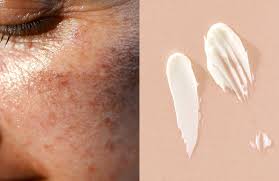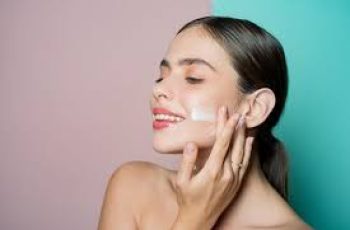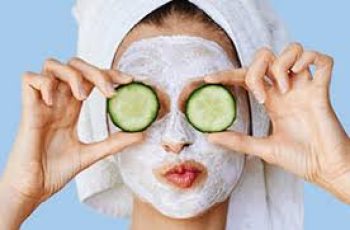
What Happens If You Stop Using Retinol?
Retinol and retinoids are widely recognized in skincare for their powerful benefits. They treat both acne and aging skin effectively.
Numerous studies confirm that retinoids improve acne severity and reduce fine lines and wrinkles. But a common question is: what happens to your skin when you stop using retinol?
The Short Answer: Your Skin Returns to Baseline
Once you stop using retinol, your skin will initially retain some benefits, but eventually, it will return to its original state before you began treatment.
The important point is that retinol does not cause lasting damage when discontinued. It simply loses its effect over time.
What Happens When You Stop Using Retinol for Acne?
Although retinol is not officially approved by the FDA specifically for acne treatment, it is commonly used as a mild retinoid to manage and improve acne.
It is often the stepping stone before moving to prescription-strength retinoids prescribed by dermatologists.
If you discontinue retinol and do not start a stronger prescription retinoid, your skin will lose the acne-preventive effects.
Consequently, acne breakouts or pimples may reappear as the retinol is no longer regulating skin cell turnover or unclogging pores.
How Long Does It Take to Lose Retinol’s Benefits for Acne?
Your skin undergoes a natural renewal process called the skin cell cycle.
It typically takes 4 to 6 weeks for new skin cells to form at the base of the epidermis and rise to the surface, where they eventually shed.
This means it can take approximately 4 to 6 weeks after stopping retinol before acne returns.
Many patients stop using retinoids after their skin clears up, only to find that pimples come back several weeks later. This stop-and-start cycle is common but not recommended for managing acne long term.
Why Consistency Matters When Using Retinol for Acne
Retinoids prevent future acne by promoting consistent skin cell turnover and unclogging pores. However, they don’t act quickly enough to clear up existing pimples immediately.
If you stop using retinol, acne tends to come and go unpredictably. Keeping a consistent retinol routine helps maintain clearer skin and avoids flare-ups caused by irregular treatment.
What Happens When You Stop Using Retinol for Wrinkles?
Retinol is renowned for its anti-aging properties. It boosts collagen production and accelerates skin turnover, improving fine lines, wrinkles, and overall skin texture.
When you stop using retinol, the wrinkles don’t suddenly worsen. The anti-aging benefits persist for some time.
However, over months, without ongoing retinol use, your skin will gradually revert to its prior condition before starting the treatment.
How Long Do Retinol’s Anti-Aging Benefits Last After Stopping?
Research shows that the improvements in skin texture and wrinkle reduction remain for at least two months after stopping retinol.
A notable study from 1990 examined subjects who used tretinoin, a potent retinoid. When they stopped the product, their skin continued to show fewer wrinkles for two months.
Maintaining Your Results: What Science Tells Us
Another important study in 1997 divided participants who had used tretinoin for nearly a year into three groups post-treatment:
One group stopped using retinoids completely and lost the benefits within six months.
Another group used tretinoin once weekly and maintained some improvement.
The last group applied tretinoin three times a week and preserved the most benefits.
This suggests that retinoids work best with regular use but even occasional applications can prolong positive results.
Why Retinol Only Works if You Use It Regularly
Retinol works by accelerating the natural shedding of dead skin cells and stimulating collagen production, vital for skin repair and youthfulness.
Stopping retinol slows down these processes. Your skin resumes its natural aging cycle and acne cycle, losing the enhancements gained from retinol use.
What Happens to Your Skin When You Stop Using Retinoids?
Eventually, your skin will revert to its original state. The speed of this reversal depends on:
The potency of the retinoid you used
The duration of your retinoid use
Other products in your skincare routine
Your skin’s genetic type and sensitivity
Do You Have to Use Retinol Forever?
The good news is you don’t have to use retinol forever. However, if your goal is to slow the signs of aging, consistent long-term use is most effective.
Retinol remains one of the top scientifically supported ingredients for anti-aging skincare.
Tips to Get the Best Results with Retinol
Use retinol at night because it can increase sensitivity to sunlight.
Apply retinol after cleansing and before moisturizing to allow proper absorption.
Begin slowly by using it 2-3 times a week and gradually increase frequency as tolerated.
Always wear sunscreen daily to protect your skin.
Avoid harsh scrubs or irritating products while on retinol to prevent over-drying.
What If You Need to Stop Retinol Temporarily?
If irritation or dryness forces you to pause retinol use, your skin will maintain some benefits for a short time.
Once your skin calms down, you can safely restart retinol without losing your progress.
If the break lasts longer, the benefits will gradually diminish, but retinol can still be reintroduced effectively.
Can Other Products Help When You Stop Retinol?
Absolutely. Ingredients like vitamin C, peptides, hyaluronic acid, and sunscreen support skin health and appearance.
However, none fully replace retinol’s unique ability to promote cell turnover and collagen synthesis.
Final Thoughts
When you stop using retinol, your skin will eventually return to its previous condition. Acne may reappear about 4-6 weeks later, and wrinkles will slowly come back over several months.
Retinol is safe and highly effective when used correctly. The best results come from consistent, long-term use.
Bonus: How to Find the Best Retinol for Your Skin Type
Retinol products vary widely in strength and formulation. Using the right retinol suited to your skin type is key for optimal results.
Consider taking a skin quiz, like the Baumann Skin Type Quiz, to discover the ideal retinol and skincare routine personalized for your skin.
DQH Knowledge drop: In your 20s, your skin cell turnover decreases. (Cell turnover is a key component in keeping your skin youthful.) You know what else slows down? Your collagen production. Starting in your 20s, collagen decreases by about 1 percent per year. Should you want to prevent fine lines and wrinkles, start by eliminating behaviors that contribute to premature aging. “If it’s bad for you, it’s bad for your skin,” says dermatologist Michel Somenek.
“Cigarette smoking reduces blood flow to the skin and causes premature wrinkling and a dull skin texture. Making the repeated pursed motion to inhale can also cause smoker’s lines. Alcohol and recreational drugs are toxins for the skin that damage its cellular structure and DNA,” Somenek tells us. “The faster you eliminate vices while you are young, the better chance your skin and body have to recuperate.” Also, adopting an anti-aging routine in your 20s is key. After all, the best offense is a good defense. We spoke to Somenek and experts Joshua Ross and Audrey Kunin to find out more.
Keep reading for the best anti-aging products for your 20s, according to skincare professionals.
Sunscreen
“We all know that the sun is the number one cause of skin aging and starting the prevention in your 20s is very important,” Ross says. “The majority of your sun damage won’t start to appear until you’re in your 30s, so don’t wait until you see it surface or you’ll be behind the curve. Stay ahead of it with a good-quality zinc-based sunscreen worn daily.”
Farmacy Green Defense Daily Mineral Sunscreen
An invisible sunscreen with SPF 30, plus botanical extracts meant to protect skin with tons of antioxidants. Bonus: It’s clean and fine to use under makeup.
Bareminerals Complexion Rescue™ Tinted Moisturizer Broad Spectrum SPF 30
Although we recommend you use your SPF and moisturizer separately, we also understand moments when you don’t have time or energy for that extra step. For those times, this bareMinerals moisturizer is a great thing to have on hand.
Vitamin C Serum
“A great introduction to anti-aging is to start with a vitamin C serum in your morning skincare routine,” Ross says. “It’s a powerful antioxidant that will neutralize free radicals and brighten the skin.” He adds that it’s a great way to counteract the effects of the sun’s harmful rays, which, as previously mentioned, are among the biggest causes of premature aging.
Drunk Elephant C-Firma™ Vitamin C Day Serum
The Drunk Elephant C-Firma is a lightweight serum that promises to give skin a glow by combining the brightening powers of vitamin C with ferulic acid, l-ascorbic acid, and vitamin E. The included sodium hyaluronate is meant to replace hydration loss, so you shouldn’t have to deal with any irritation.
Sunday Riley C.E.O. Rapid Flash Brightening Serum
This potent serum is jam-packed with vitamin C (15 percent, to be exact), which means it’s a potential superstar at both brightening skin and dousing it in antioxidants.
Peptides
Using peptides on your skin has many benefits, says Somenek. “The skin barrier is what defends the body against pollution, UV rays, bacteria, and toxins. It can be damaged by several everyday factors. Using topical peptides aids in building a stronger barrier,” he says. “Peptides comprise elastic fibers, which are a type of protein. These fibers help to make skin appear taut and firm. Peptides can also help repair damaged skin, relieve inflammation, and even out skin tone. Some peptides can kill acne-causing bacteria that is common in 20-somethings.”
Kunin agrees, saying, “Peptides are an excellent entry point for supporting collagen.” She recommends looking for face and eye treatments that contain these collagen-boosting powerhouses.
Charlotte Tilbury Magic Eye Rescue Cream
This Charlotte Tilbury super-emollient eye cream has a base of coconut oil and shea butter (read: it’s incredibly hydrating). Botanicals plus peptides are meant to help reduce dark circles and boost collagen, respectively.
This creamy moisturizer serves up potent collagen-boosting peptides and pycnogenol, and antioxidant-rich vitamin C. “Instead of sitting on top of the skin, peptides penetrate the outer layer so they go deep. The ‘signals’ they send tell the cells to produce elastin and collagen, which are needed for youthful-looking skin,” explains Somenek.
At-Home Peel Pads
Remember that skin cell turnover fiasco we talked about earlier? One way to help support it is by exfoliating. “Exfoliation is important to help keep skin fresh and luminous,” Kunin says. She recommends using at-home peel pads as an easy and effective way to exfoliate.
“The goal in your 20s is to fight the slowing pace of cell turnover. It is wise to use products that gently exfoliate, yet still remove oil and other impurities. Products that have Alpha Hydroxy Acids (AHA) or Beta Hydroxy Acids (BHA) are a good choice.”
According to Somenek, you should only exfoliate two to three times a week. “People of all ages are guilty of over-exfoliating and that can be too much of a good thing,” he says.
Dermadoctor Kakadu C Intensive Vitamin C Peel Pad
A few swipes of this Derma Doctor powerful peel pad promise to leave your skin glowing and smooth, thanks to the seven (yes, seven) types of chemical exfoliants, including AHA and BHA. It also contains vitamin C via Kakadu plum extract for added brightening and antioxidant protection.
KEY INGREDIENTS Kakadu plum extract is sourced from the Kakadu plum, a fruit grown in northern Australia. It contains vitamin C, which restores the skin’s natural barrier, increases collagen production, and soothes irritation.
Dr. Dennis Gross Skincare Alpha Beta® Universal Daily Peel Pads
These are the gold standard of peel pads, with a cult following and over 900 five-star reviews on Sephora. They’re easy to use and contain a blend of anti-aging exfoliating acids.
Emollient Night Cream
“In your 20s, you need to start upping the hydration in your skincare routine. You may have been cautious of over-moisturizing because of acne in your teens, but as you enter your 20s, your skin transitions and becomes drier,” Ross says. “I recommend an emollient night cream added into your evening skincare regimen.”
“Twenty-somethings need to make sure that they are not using creams that will clog their pores and cause excess oil production,” says Somenek. Opt for non-comedogenic products.
Cerave Skin Renewing Night Cream
One great choice is the CeraVe Skin Renewing Night Cream, which is a non-comedogenic night cream that leaves skin soft and glowy. It combines the moisturizing powers of ceramides and hyaluronic acid.
RoC Retinol Correxion Max Hydration Creme
“The best night cream ingredients contain retinol, benzoyl peroxide, and/or salicylic acid or hyaluronic acid. The goal is to moisturize, yet remove excess oil,” says Somenek. This Roc Retinol Correxion cream fits the bill as it contains both hyaluronic acid and retinol so it promises to moisturize while also being non-comedogenic.



